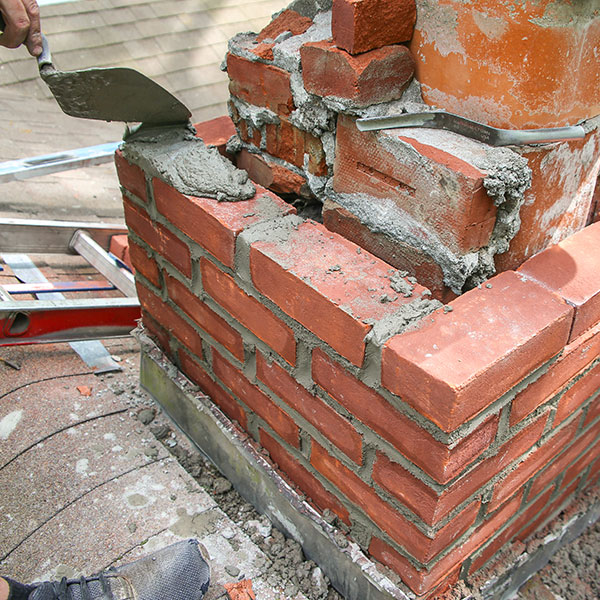Chimney Masonry Repair: Why It’s Needed
One importance of having an annual chimney inspection is to discover if you might have any masonry damage. If your chimney was not sealed with the right materials, water can seep into the masonry causing the mortar to weaken and the bricks to deteriorate. There is also the possibility during the winter that the water trapped inside the masonry will freeze and cause structural damage to the chimney.
 Sometimes chimney masonry repair is needed due to the age of the chimney. In older homes, brick and mortar chimneys get moisture that sets in and mixes with the creosote. This causes mild acids that will damage the lining and masonry of the chimney.
Sometimes chimney masonry repair is needed due to the age of the chimney. In older homes, brick and mortar chimneys get moisture that sets in and mixes with the creosote. This causes mild acids that will damage the lining and masonry of the chimney.
Even someone who takes care of their chimney will most likely need repairs. The average chimney will flake, wash out, or crack after 25 to 30 years. Anyone living in an older home with a chimney should be on the lookout for condensation buildup and have regular inspections to make sure that the chimney stays in good working order.
If you need masonry repair, it can be determined during a chimney inspection. Your chimney inspector will look for deteriorating and loose bricks, crumbling mortar joints, and creosote or other residues that may reside inside the liner.
There are measures that you can personally take to prevent moisture from damaging the masonry in your chimney.
Have a chimney cap installed to stop water from getting inside the chimney.
- Install a new chimney liner that can protect your chimney from the acids developed by a creosote mixture.
- Seal and resurface the chimney.
- Have cracks repaired that appear in the crown of the chimney.
- Have an annual inspection performed by a licensed, insured, and professional chimney sweep.
Resources: 2nd Generation Chimneys, Inc., How Stuff Works








